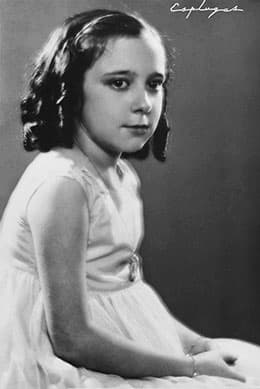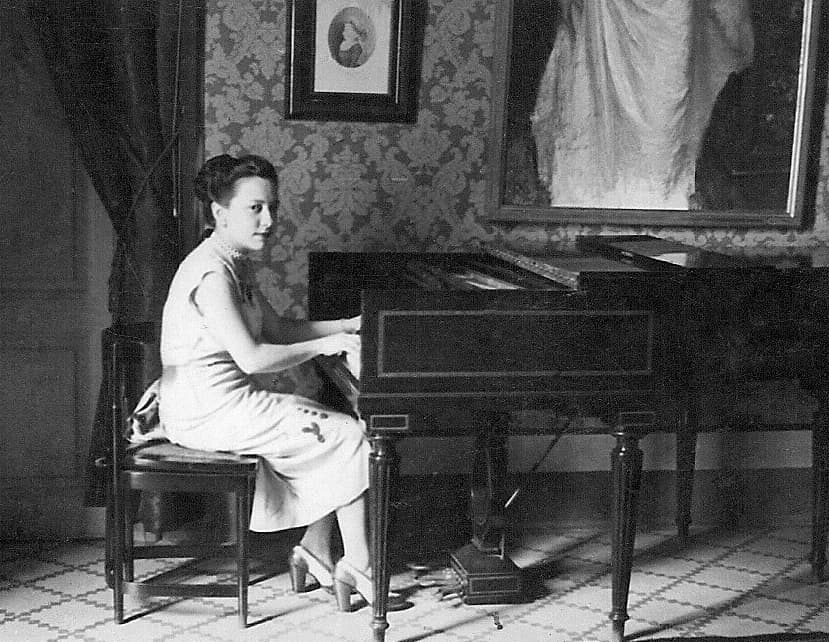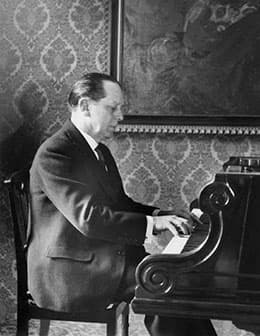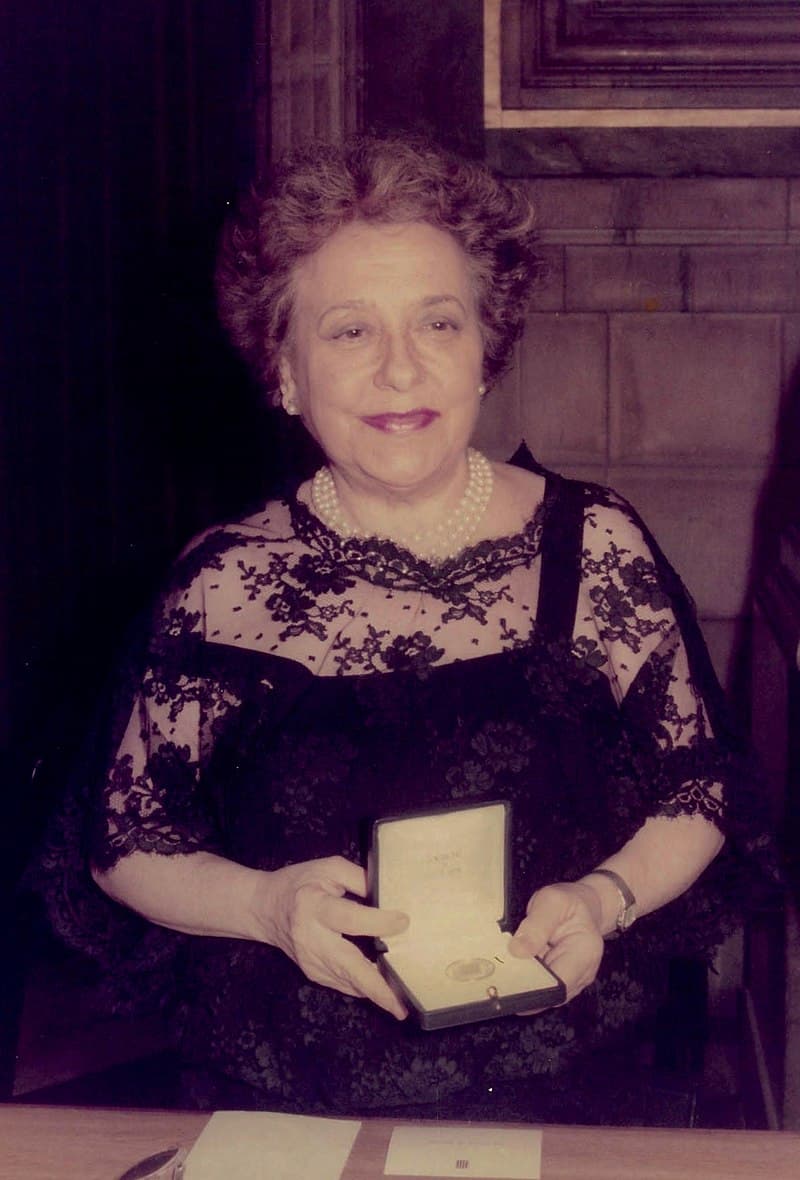Alicia de Larrocha, born on 23 May 1923 in Barcelona, Catalonia, Spain, was never too keen on giving interviews in English. That reluctance was based on the unfounded fear of being unable to express her views on music fully and comprehensively. She really should not have worried, as the depth and refinement of her performances, making her one of the best and most important pianists in the 20th century, easily transferred to her ability to express herself verbally.

Alicia de Larrocha as a young girl
“I grew up listening to music,” she explained, “because I was completely surrounded by it. Both my mother and my aunt (Carolina de la Calle) had been students of Enrique Granados, but my mother abandoned her piano studies when she married. Not so my aunt. She continued her studies and eventually took on teaching responsibilities at the Frank Marshall Academy.” Marshall had been Granados’ teaching assistant at the Academy, and when he died in 1916, he took over the directorship.
Alicia de Larrocha Plays Chopin
Alicia de Larrocha begged her aunt to give her piano lessons, and when she turned two years of age, her aunt finally relented. And when young Alicia, around the age of four, attended a recital at the Marshall Academy, she convinced Marshall to let her play for him. Apparently, he became curious when Alicia started to improvise, and he agreed to give her lessons. De Larrocha remembered, “There seemed to be no steadfast method to his teaching. He was frequently critical, but he let me do pretty much what I wanted, now and then substituting what he thought would do me more good. And so, at a very young age, music became my life… I just wanted music to be as much a part of my physiology as the heart, lungs, and other vital organs were. Music fulfilled a need, a craving, and that was it.” To be sure, Marshall passed his distinctive approach to voicing, sonority, and the subtle inflections of pedaling he had learned from Granados to his protégée Alicia de Larrocha.
J.S. Bach: Concerto in the Italian Style in F Major, BWV 971, “Italian Concerto” (Alicia de Larrocha, piano)

Alicia de Larrocha playing harpsichord at Frank Marshall Academy in 1948
Alicia de Larrocha’s extraordinary musical abilities were abundantly obvious, however, “both her family and teacher did not wish her to suffer the exploitation that many prodigious children experienced in those days.” Her parents certainly never pushed her towards a career as a pianist. “At times,” de Larrocha explains, “my mother almost seemed terrified at the thought of my living the life of a pianist. She told me to live now, while I was young.” Her public appearances were limited, as she first appeared in public at the Marshall Academy on 14 May 1929.

Frank Marshall King
Performing works by Bach, Mozart, and Granados, she quickly went on to make her first recording at the age of nine, and she made her orchestral debut at the ripe old age of 11 playing a Mozart concerto with Maestro Joan Lamote de Grignon and the Barcelona Municipal Band. Her emerging career came to a complete halt during the years of the Spanish Civil War, between 1936 and 1939. “I did nothing but play for myself and write a little music,” she remembered.
Alicia de Larrocha Plays Mozart’s Piano Concerto No. 25 in C Major, K. 503
Alicia de Larrocha never participated in piano competitions, and she always thought, “that the whole system was completely wrong. It has nothing to do with music or the artist. It’s like an Olympic which is artificial and mechanical… If the pianist is good, they don’t need a competition. That isn’t music, nor is it art.” For de Larrocha, there is no definite method to build a career as a musician. “For me,” as she explained in an interview, “it was simply the force of love for music, something that I had to do because music was such an integral part of my life.”

Alicia de Larrocha in 1983
For me personally, Alicia de Larrocha has offered one of the most eloquent explanations of what it means to be a musician. As she expressed in an interview, “In order to dedicate one’s self to music, one has to consider it a true vocation and to love it, without setting any rigid conditions. The worst enemy of art is to be in a hurry. The command of art is not achieved with a deadline in mind. A whole lifetime, no matter how long, is not enough to reach the goal of our ambitions.”
For more of the best in classical music, sign up to our E-Newsletter
